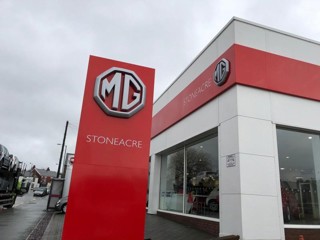Car retail's agency model may not suit the sector's agencies, according to professor Jim Saker.
In his latest exclusive opinion piece for AM the director of the Centre for Automotive Management at Loughborough University’s Business School, Institute of the
Motor Industry (IMI) president and an AM Awards judge considers the potential impact of a contractual shift for franchised retailers.
Personally, one of the most interesting talks at January’s AM Live Online was the interview between AM’s Tom Sharpe and Marshall’s CEO Daksh Gupta.
Gupta’s insight on what he saw as the ‘positive evolution’ of the retail automotive sector away from a traditional franchised system towards an agency model was one of
the most informed and balanced views on the subject I have heard.
View our AM Live Virtual interview with Marshall Motor Holdings chief executive, Daksh Gupta, here:
One of the first classes I ran at Loughborough had a mixture of manufacturers and dealers in the room.
I moved from being a lecturer to being a referee trying keep the warring sides apart.
Over the years in most franchises the situation has improved and it has, in Gupta’s words, become a ‘symbiotic’ relationship.
A transition towards an agency model, as Daksh admits, will give greater power to the manufacturer particularly in the area of product supply and marketing
discounts.
But will also give a dealer group a more healthy balance sheet, lower interest payments and a regulated profit.
With the swing towards electric and other powertrains there is the opportunity for manufacturers to make a move towards an agency model.
The question that has yet to be answered is the appetite that they have for this model and the speed that it could be introduced.
From my perspective, the move towards an agency model runs parallel with the move of some manufacturers to look at not only the lifetime value of the customer but also the lifetime value of the vehicles they make.
Announcements from a number of makers that they want to become ‘mobility companies’ implies they will be looking to control not only new car sales but maybe two or three subsequent sales cycles of the same vehicle.
By doing this they have the potential to keep the long-term profitability within the manufacturer and dealer relationship.
One interesting aside in Daksh’s interview was his reference to sector intermediaries. A manufacturer-controlled, agency world would have the potential to make irrelevant many of the agencies and independents who work in the new and used car space.
Manufacturers will want to impose their prescribed data management systems as this would be needed to make the agency system work.
By doing this they have the capability of keeping vehicles within their branded network, limiting the supply to anyone outside.
With agency-based standardised pricing the role of price point intermediaries would become less important and the search for used vehicles could potentially be done predominantly through manufacturer sites.
An agency model looks good for those inside it, but may present a challenge for those outside. Ironically, an agency model may not be good news for agencies.


















Login to comment
Comments
No comments have been made yet.